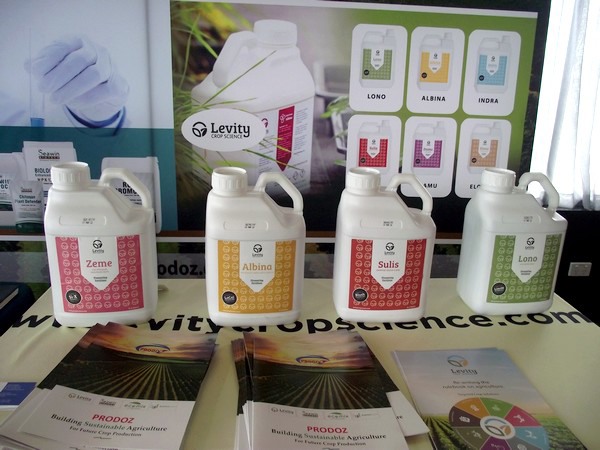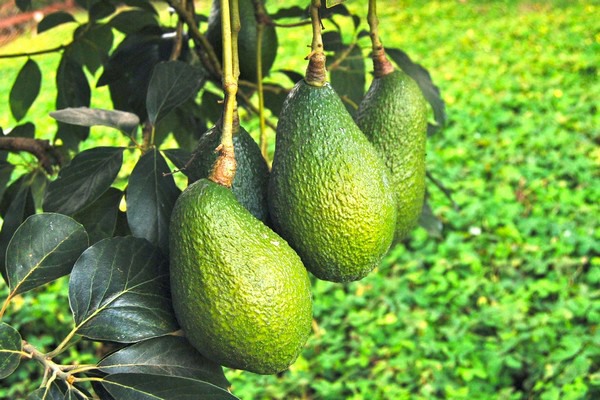A specialised nitrogen fertiliser that is aimed at being more efficient and environmentally stable is gaining ground in Australian fruit and vegetable crops, as growers seek more sustainable options to improve marketable yields.
A specialised fertiliser that helps fruit and veg growers maximise yield in an environmentally-friendly way.
 Lono was invented by UK-based award-winning scientist and Levity Crop Science managing director Dr David Marks, and in Australia, it is supplied through ProdOz. The company's crop science technologist Zenon Kynigos, says Lono was developed specifically to help farmers achieve productivity gains efficiently whilst being environmentally friendly and uses LimIn technology, a process patented by Levity to hold nitrogen in the amine form.
Lono was invented by UK-based award-winning scientist and Levity Crop Science managing director Dr David Marks, and in Australia, it is supplied through ProdOz. The company's crop science technologist Zenon Kynigos, says Lono was developed specifically to help farmers achieve productivity gains efficiently whilst being environmentally friendly and uses LimIn technology, a process patented by Levity to hold nitrogen in the amine form.
"Fertiliser is notoriously inefficient and most of it is wasted - calcium and nitrogen being the two most wasteful," Mr Kynigos said. "We know about one-third of nitrogen actually goes into the crops, but the other two-thirds are wasted. So that can be volatilisation into the atmosphere, or leaching into the waterways and ground. That was a universal problem and fertiliser has been inefficient for a very long time and there hasn't been much in the way of development for improving the science and creating better products. Some farmers we find are very technical and innovative and always pushing the boundaries of their production systems to improve what they are doing."

Photo: the range of Levity Products, Lono far right; above Zenon Kynigos.
Dr Marks is a world authority on plant physiology and the inventor of more than 30 patented agricultural products. Lono and other fertilisers in the Levity range have become recently available in Australia and have been used globally since Levity was founded in 2010.
"The first step was making the nitrogen environmentally stable, so Lono has been manipulated at a chemical level to become stable," Mr Kynigos said. "It's a bit complex how it is done, and the exact method is actually patented, but I can say it is done in a different way to everything else. Previous stabilised nitrogen products have been based on urease or bacterial inhibitors which stop the bacteria from converting the nitrogen applied, however, this comes with downsides - detrimental to natural microbes, builds bacterial resistance and can negatively affect the plant's metabolism.
"Dr Marks has elegantly manipulated the chemistry of the nitrogen molecule to make it stable. So, it fixes up problem number one of environmental pollution. It is very good for the plant, and none of it is wasted; not only can it stay in the environment for a very long time in a stable form, but the plant can absorb it quickly and use it much more effectively than standard ammonium or nitrate fertilisers. That way we don't have to use as much of it, so the application rate is low and you get a lot of bang for your buck. We don't have to overcompensate like conventional fertilisers and therefore don't have the same waste or pollution."

Mr Kynigos added that Levity believes in the importance of scientific proof and that farmers around the world have been using Lono successfully for years and two of the major drivers of sales of the product here in Australia have been the push into sustainable agriculture by the industry, as well as the rising cost of fertiliser globally.
"People are looking to use efficient products not just to get a good result, but to also save their wallets," he said. "Growers cannot afford to keep using large amounts of inefficient fertilisers. Our goal first and foremost is to help growers get a better result using this product; that means increasing the marketable yield and increasing the quality. That's our target number one. Once we achieve that, we help people reduce input costs, such as traditional fertilisers from their programs. The third step is a happy by-product of step two - less environmental pollution from inefficient products leads to a more sustainable operation."
It was developed for large-scale crops such as orchards, vineyards, broadacre vegetables, grain crops and more but it has found a place in smaller-scale growing such as hydroponic and glasshouse production. It is in use in various crops throughout Australia including stone fruit, citrus, berries and root vegetables. Mr Kynigos also noted that it helps plants during times of stress induced by weather extremes – which is especially relevant given the conditions many Australian growers have faced in the past two years.
The ProdOz team will exhibit a range of products including Lono at Hort Connections in Adelaide from June 5-7.
For more information:
Zenon Kynigos
ProdOz
Phone: +61 467 628 493
zen@prodoz.com.au
www.prodoz.com.au
www.levitycropscience.com.au
